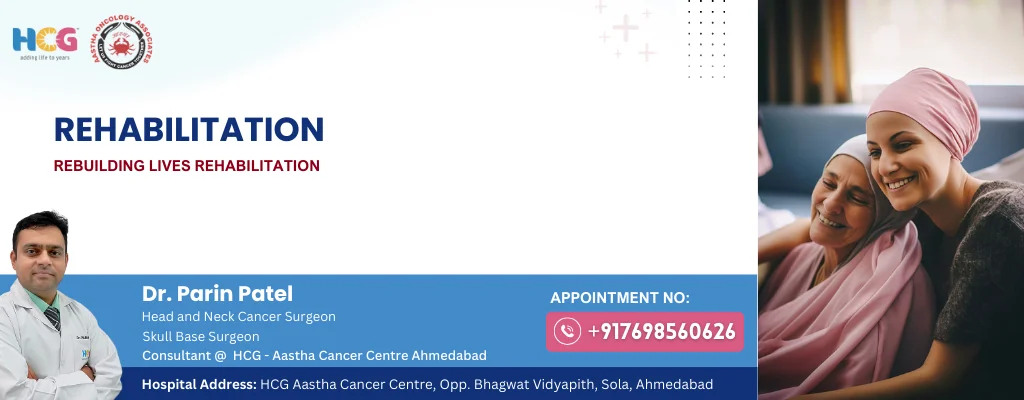
Rehabilitation is necessary in the recovery process after receiving treatment for the conditions affecting the head, neck, or skull base. Whether recovering from surgery, managing the long-term impacts of a medical condition, or regaining lost functions, rehabilitation aims to help patients achieve the highest possible quality of life.
Rehabilitation is an appropriate process that assists patients in recovering and adapting after treatment. It focuses on a variety of requirements, including physical, emotional, and social well-being. Rehabilitation for people with head and neck disorders frequently focuses on areas such as:
Rehabilitation is necessary for strengthening recovering rates and reducing long-term problems. After treatments such as parotid gland surgery or endoscopic skull base surgery, patients may encounter temporary difficulties with speech, swallowing, or mobility.
Rehabilitation helps:
Patients recovering from neck and head surgery get rehabilitation therapies that address physical, functional, and emotional issues, allowing them to restore strength and enhance their quality of life. Key rehabilitative services include the following:
These treatments are frequently given by a multidisciplinary team of professionals that collaborate to promote a smooth recovery and the best possible results for each patient.
As the best Head and Neck Surgeon in Ahmedabad, Dr. Parin Patel brings over 12 years of experience in treating complex head and neck disorders. He understands that successful rehabilitation goes beyond surgery or medical treatment, adopting a comprehensive approach that integrates advanced medical care with supportive therapies. Dr. Patel prioritizes long-term health and well-being, ensuring that patients receive the necessary guidance and support to regain confidence and improve their quality of life.
Our surgeries
Dr. Parin Patel's Other Visiting OPDs
HCG Hospital Road, nr. Aastha Avenue, off 150 Feet Ring Road, Puneet Nagar, Ayodhya Chowk, Rajkot, Gujarat 360006
2nd Saturday of Every Month
10:00 A.M. To 12:00 P.M.
GIDC Main Rd, behind Shree Swaminarayan Sanskardham, Sardar Nagar, Morbi, Gujarat 363641
2nd Saturday of Every Month
02:00 P.M. To 03:00 P.M.
© 2025 Dr. Parin Patel. All Rights Reserved